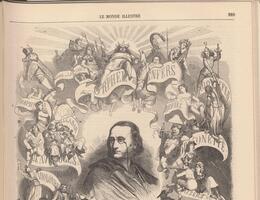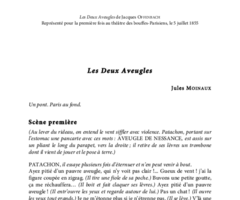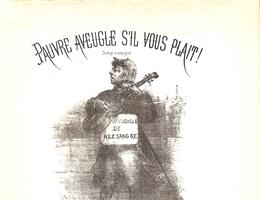Les Deux Aveugles
By describing two fake blind men fighting over alms from passers-by on a bridge in Paris, Jacques Offenbach was—with the help of a libretto by Jules Moinaux (1815-1895)—pandering to the well-heeled audiences of the French Second Empire. In a Paris which aspired to urban modernity, several years before Baron Haussmann began rebuilding the city, musical begging was regarded as a nuisance which had to be combatted. It was with this “bouffonnerie musicale en un acte” that Offenbach opened his Théâtre des Bouffes-Parisiens (then situated on the Champs-Élysées) on 5 July 1855. The operetta was an immediate and lasting success. The trombonist Patachon and the guitarist Giraffier were given four numbers to delight the audience. The romance sung by Patachon by way of an introduction allowed Offenbach to try out the technique of cutting phrases in completely the wrong place (“L’aveugle à qui qu’on fait l’aumône/N’est point z-un faux nécessiteux,/N’est point z-un faux né…/Un faux né/Un faux nécessiteux”). The following duet contrasts and combines the two beggars’ complaints. For the third number, the two rivals sing the same bolero brought over from Seville (“Lesquelles villes? – Séville, quoi !... en Turquie”). This is the number which, as a stand-alone piece, established the work’s reputation outside the theatre. The last passage is a parody of Meyerbeer’s Robert le Diable (premiered at the Paris Opéra in 1831): the finale of Act I is explicitly quoted (“Ô fortune! à ton caprice”) before the two protagonists resume their bolero and vie for alms from another passer-by.



